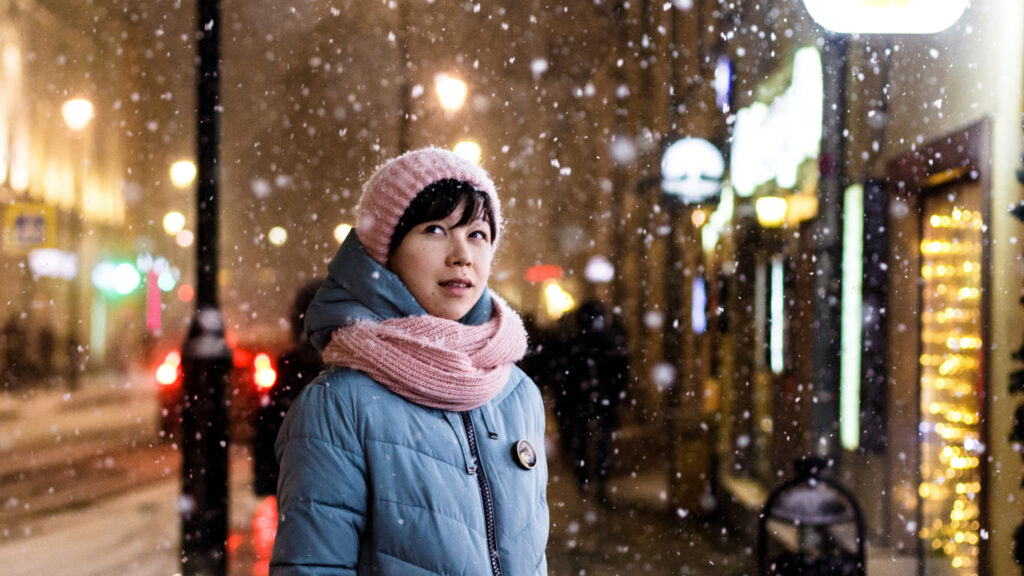For better or worse, the holidays are very family-centric. Typically, holiday traditions are centered around being at home with your family. However, many people don’t have family to go home to during the holidays, or maybe they simply cannot logistically get home for the holidays due to work obligations or financial constraints. Either way, if you’re in one of these positions, the holiday season might leave you feeling isolated and longing for connection.
The huge cultural emphasis on family gatherings during the holidays, whether it’s being perpetuated on social media or all the holiday movies on TV, can further intensify your feelings of loneliness. It’s like the whole world is wrapped up in festive family cheer, and you’re on the outside looking in. The pressure to take part in the family joy can make it tough for those who don’t have a picture-perfect family to go home to.
Here are six pieces of advice for people who aren’t going home for the holidays:
1. Acknowledge and validate your feelings
While you may feel pressure to be merry during the holiday season, forcing yourself to feel a certain way isn’t healthy. Everyone experiences the holidays differently, and it’s important to note how you really feel.
“Acknowledge how you feel – the good, the bad, and the indifferent,” says Nakeya Gore, a licensed clinical social worker with Grow Therapy. “There’s something powerful about telling yourself the truth. Your truth may sound like, ‘The holidays are hard for me’ or ‘I feel lonely this time of year.’”
There’s something powerful about telling yourself the truth. Your truth may sound like, ‘The holidays are hard for me’ or ‘I feel lonely this time of year.’
- Nakeya Gore, LCSW
Let yourself feel these emotions, and remind yourself that whatever you’re feeling is valid. You may find it helpful to journal and write out your thoughts or to vent to a trusted loved one.
Also, if you are already established with a therapist or counselor, ask them about their availability during the holiday season. Many offer sessions during this time, but with less availability than usual.
2. Create new solo traditions
Who said you need other people to create traditions? Solo traditions are just as valid and can be something you look forward to every year, no matter where you are or who you’re with. This may look like taking yourself out to your favorite meal and using the time to set goals related to personal growth, says Stacy Thiry, a licensed mental health counselor with Grow Therapy. Or, it can even be as simple as watching a favorite holiday movie, having a spa day, going for a hike, you name it. The best part of a solo tradition is that it can be anything you want it to be – no compromise with other people necessary.
3. Go on an adventure
If you’ve got the travel bug, why not go on a solo trip? “Consider using the time off to explore a new city or environment,” says Thiry. “Travel can be an excellent way to stimulate the senses and distract from what could be loneliness during the holiday season.” Solo traveling is a great way to learn about yourself, experience new cultures, do whatever you want to do, and meet new people. You’ll likely meet other solo travelers who are also doing their own thing this holiday season, which can offer you some camaraderie.
If long-distance travel is not an option, consider trying some new restaurants, parks, and other places around your town that you haven’t yet visited.
4. Volunteer your time
If you have extra free time that you’re looking to fill up, consider volunteering your time, Thiry suggests. She recommends checking out opportunities offered by shelters, food banks, schools, churches, or other local organizations. Finding a cause you’re passionate about and giving back is a great way to spend the holidays. Whether you want to help walk dogs at a local animal shelter or give out food to underserved populations, you’re bound to find something that you enjoy that helps give you a sense of purpose.
Not to mention, helping people releases feel-good hormones in your brain, like serotonin, dopamine, and endorphins, all of which can boost your mood. Volunteering also helps you meet new people who are passionate about the same things as you, allowing you to create new social connections and find a sense of community.
Helping people releases feel-good hormones in your brain, like serotonin, dopamine, and endorphins, all of which can boost your mood.
5. Reach out to your social network
Chances are, you are not the only one in your social or professional network who doesn’t have a family to go home to or can’t make it home for whatever reason. Thiry says this is a good chance to spend time with colleagues or friends who will also be staying in town. You may consider sending out a group text or email asking who will be sticking around for the holiday, and then suggest having your own holiday gathering.
Alternatively, you can set up virtual meet-ups with friends or family members out of town. Whether that means having a long one-on-one FaceTime catch-up with a friend who lives out of state or hosting a small Zoom holiday party, you can have fun and feel that social connection even when you’re home alone. If you are up for it, there are many types of fun party games that can be played over Zoom with loved ones and friends.
6. Seek support with therapy
If you’re struggling with loneliness around the holidays, or any time of year for that matter, consider speaking with a therapist. A professional can help you learn coping methods to boost your mood. Grow Therapy can connect you with online therapists who accept your insurance.

